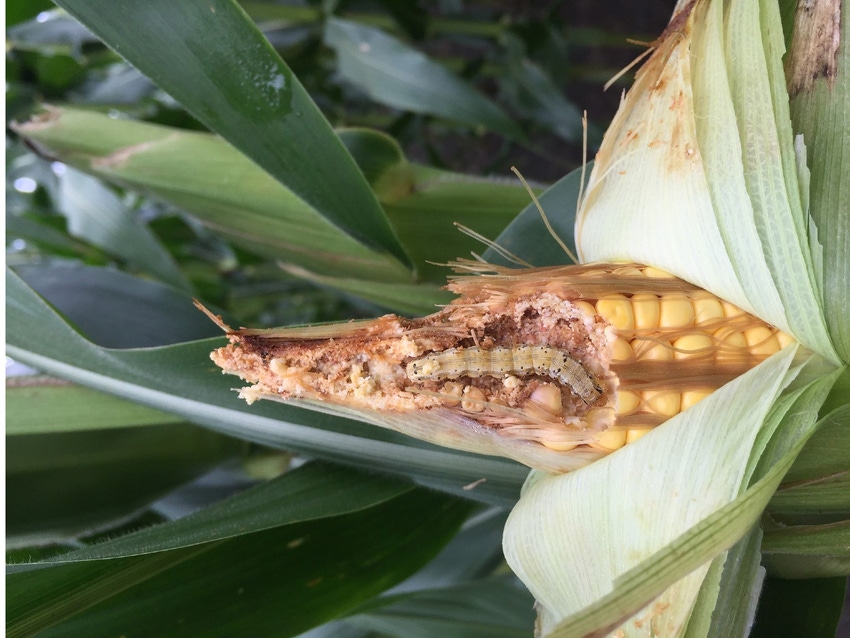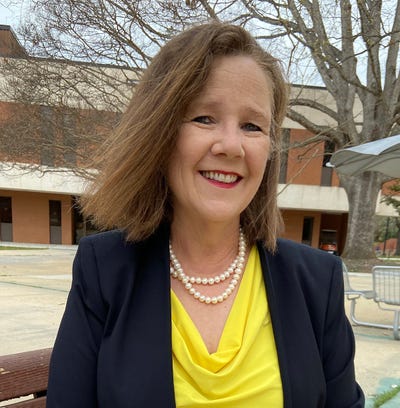
Environmental concerns and insect resistance to pesticide use led to the adoption of a new approach to pest control — Integrated Pest Management (IPM) — in the 1970s.
Some 50 years later, Clemson University researchers are still encouraging growers to use IPM strategies to control insects, pathogens, nematodes and weeds. Now an email newsletter has been created to encourage adoption of IPM practices in South Carolina.
IPM is a pest management approach that minimizes economic, environmental and health risks. It is conducted by using a variety of methods including biological, cultural and chemical strategies to control pests. Information from the United States Department of Agriculture (USDA) shows that in IPM methods, pesticides are used in combination with other crop management approaches to minimize the impacts of pests while maintaining healthy and profitable crops. IPM principles can be applied to any pest of food or fiber production systems, landscapes and urban environments.
Francis Reay-Jones, Clemson IPM coordinator at the Pee Dee Research and Education Center (REC), oversees a statewide research-based Cooperative Extension Service IPM Program.
“The overarching goal of this program is to increase adoption of cost-effective and environmentally sound IPM practices to provide long-term solutions to critical pest management challenges,” Reay-Jones said. “Through this program, we are teaching producers and pest managers how to effectively use IPM practices to control pests while minimizing risks to the environment and to people, and reducing the evolution of resistance to pesticides.”
The newsletter is available under “News” on the Clemson Integrated Pest Management website: https://www.clemson.edu/extension/ipm/. Tim Bryant, assistant coordinator for the Clemson IPM Program, said the newsletter highlights IPM-based Extension work throughout South Carolina.
“We are planning to update the newsletter once a month,” Bryant said. “We will include information from specialists and agents related to pest issues they are seeing in the field.”
Information found in the June newsletter includes an article on Fungicide Programs for Downy Mildew Management in Cucumbers by Tony Keinath, , Clemson Extension vegetable pathologist at the Coastal REC in Charleston. Mike Marshall, Mike Marshall, Clemson Extension weed specialist at the Edisto REC, , provides information about Weed Suppression Using Cover Crops and Lexington County agent Justin Ballew addresses the Efficacy of Insecticides for Diamondback Moth Caterpillars in Brassicas.
The newsletter also includes a link to the Clemson Extension Land-Grant Press article, Biological Control Strategies in Integrated Pest Management Programs, written by Drew Jeffers, Spartanburg County coordinator and Horticulture and Natural Resources agent, and J.C. Chong, an entomologist at the Pee Dee REC.
In addition to appearing on the Clemson Integrated Pest Management website, the newsletter also can be emailed. Subscription is free. For more information, or to be included on the newsletter email list, contact Tim Bryant at [email protected].
Source: Clemson University, which is solely responsible for the information provided, and wholly owns the information. Informa Business Media and all its subsidiaries are not responsible for any of the content contained in this information asset
About the Author(s)
You May Also Like






